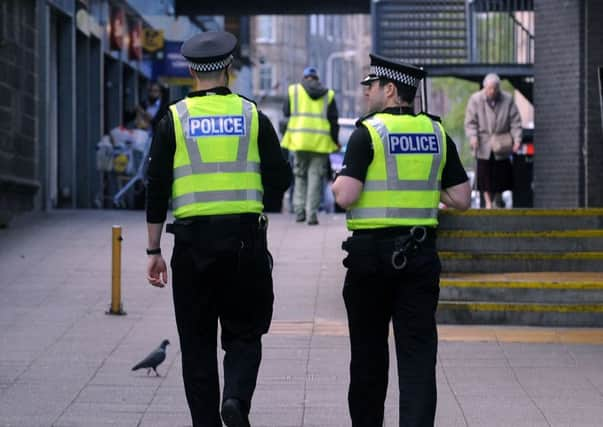Police to curb stop and searches on children


Assistant Chief Constable (ACC) Wayne Mawson announced the move while giving evidence on the controversial stop-and-search policy to the parliament’s justice sub-committee on policing.
He said young children under the age of criminal responsibility could not make a considered decision in agreeing to a search – and pledged to roll out the new policy Scotland-wide with immediate effect.
Advertisement
Hide AdAdvertisement
Hide AdIn response to a question from MSP Alison McInnes over how police officers can be sure a young child or someone with learning difficulties could understand that they are agreeing to a voluntary stop and search, ACC Mawson told the committee he would make a “strong statement” over the issue.
“From here on in, we should not be searching young children . . . on a consensual basis. It has to stop. That’s the message going forth that I will be putting out,” he said.
Scotland raised its age of criminal responsibility from eight to 12 in 2011, a move which saw the country no longer have the lowest such age in Europe. In England and Wales, the age is ten
ACC Mawson said he planned to hold an emergency meeting with new stop-and-search advisory body the Expert Reference Group (ERG) to see how the measure could be brought in “in quick time”.
The ERG, which was set up to oversee the stop-and-search policy, is made up of representatives from various agencies, including the Scottish Human Rights Commission, anti-knife crime campaigners and the Crown Office.
The move to ban consensual searches for young children was already due to be brought in across Fife, where a six-month pilot scheme to overhaul stop-and-search techniques is due to begin in two weeks.
The results of the pilot scheme will be subject to an academic report and analysed before being rolled out nationwide.
Statutory stop and searches – used in more serious criminal situations – would still be applicable to youngsters. The use of non-statutory stop and search is not permitted anywhere else in the UK.
Advertisement
Hide AdAdvertisement
Hide AdACC Mawson said there was a need for an overhaul of stop and search following a report into the practice published last month by the Scottish Police Authority (SPA).
“There is a need to modernise some of our thinking and some of our processes [with regard to stop and search],” he said.
Reforms to be piloted in Fife include new, more clear wording, explaining the voluntary aspect of a consensual search, as well as a nationwide database containing details of every stop and search which will be analysed and “dip tested” on a regular basis. Data held on the database will include age, date of birth, ethnicity and the reason for the search.
People who have been searched will be given an advice slip, outlining what stop and search is and containing a contact number for feedback to Police Scotland. Police officers taking part in the pilot will also be issued with new guidance on when they should utilise the stop-and- search option.
Politicians yesterday welcomed the move. Scottish Liberal Democrat justice spokeswoman Ms McInnes said: “I am delighted after months of pressing the authorities for a change to protect children Police Scotland have finally conceded that the position was indefensible.
“This is a victory for children and their rights. We’ve argued all along for them to be protected. This acceptance of the problems of voluntary stop and search demonstrates change is required.”
SEE ALSO